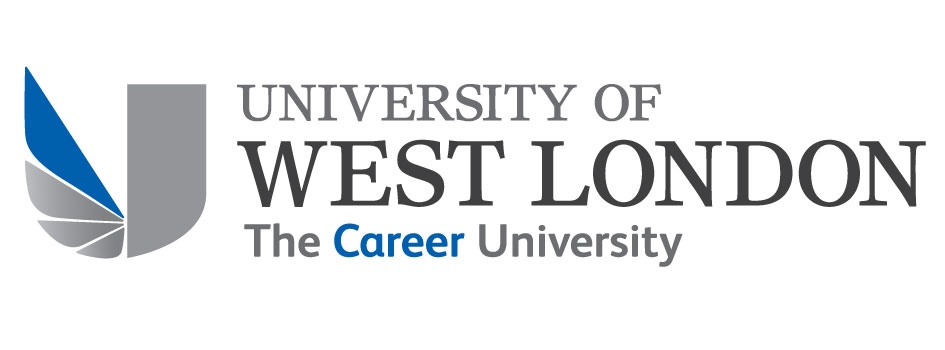Introduction
Emily Caston
Professor of Screen Industries
Director of the Policy and Practice Research Institute of Screen and Music
University of West London
Email: emily.caston@uwl.ac.uk
In 1966, the New Left Review published an article about women and inequality titled ‘Women: The Longest Revolution’ by Juliette Mitchell. She wrote at a time when the Women’s Liberation movement was in its early days. Here in Ealing, where the University of West London’s St Mary’s Campus is situated, the Women’s Liberation local Ealing branch was launched in the 1960s (Kouimtsidis, 2021). Mitchell began the piece with this statement:
“The situation of women is different from that of any other social group. This is because they are not one of a number of isolable units, but half a totality: the human species. Women are essential and irreplaceable; they cannot therefore be exploited in the same way as other social groups can. They are fundamental to the human condition, yet in their economic, social and political roles, they are marginal. It is precisely this combination—fundamental and marginal at one and the same time—that has been fatal to them” (Mitchell 1966, 11).
Mitchell argued that understanding – and indeed overcoming - this situation required getting to grips with four structures that maintained women in this position: production, reproduction, sex and the socialisation of children. The theme of the current issue of New Vistas is women and work, and I have interpreted work as ‘labour’ and applied it in the most general sense to incorporate the four domains identified by Mitchell. Theorisations of labour have come a long way since the work of Mark and Engels, cited by Mitchell. “Emotional labor” was coined by the sociologist Arlie Russell Hochschild in 1983 to reflect the work that predominantly female employees do. In 2001, Michelle Budig and Paula England coined the term “motherhood penalty” to denote the process whereby mothers generally earn less than other women and hold lower pensions on retirement.
Globally, inequalities between men and women at work remain stark. In 2023, women earned just 77 cents of each dollar earned by a man (World Bank Forum, 2024). The Global Gender Gap Report 2023 found that women often face substandard quality of working conditions; out of every five jobs created for women, four are within the informal economy (the ratio is two out of every three jobs for men). Informal work frequently carries a lack of legal protections, basic security and reasonable working conditions. The report notes that progress in raising women’s working conditions in the last decades, has been slower than expected, and women continue to face greater barriers to entering the workforce than men. Inadquate care systems are one of most severe roadblocks (World Economic Forum, 2023).
Ann Oakley’s article deals with the social status of women’s work as housewives within the home. It documents the emergence of an educational and social movement in Europe and the USA from around 1880 using the scientific paradigm to elevate the status of housework: the ‘household science movement’. Oakley addresses the consequences of the movement and the impact that it had both inside and outside the home. She argues that it had a lasting impact on the way that housework was done, and that new housework technologies “created professional opportunities for women on the fringes of the scientific / technical world.” Oakley’s article connects with the next, my own article on the representation of women in British television advertising from the 1950s to the 1970s. Scholarship on early television commercials has focused on the housewife, and “her” role in driving economic growth as the chief purchaser of new domestic goods in the post war British economic boom. Both articles connect with Oakley’s earlier seminal research on housework (1974).
Helen Hester’s article, although it deals nominally with current issues around the automation of work, engages with a much larger ongoing international issue about women’s care work. Cantillon, Mackett and Stevano define ‘care’ as “all activities that enhance people’s physical and emotional health and well-being, thus sustaining human life and the reproduction of the workforce and societies” (2023, 71). Categories of unpaid carework like mothering and housework make a major indirect contribution to the economy, although, formally categorised as ‘non-market work’, it is not included or counted in the national accounting systems of nation-states. Women undertake “without exception” more than three-quarters of unpaid care and make up two-thirds of the paid care workforce (Cantillon, Mackett and Stevano, 2023, 73).
Angela Saward’s report deals with the labour of pregnancy and childbirth. It also engages with broader issues about the medicalisation and pathologisation of women’s labour in this sphere documented by Cahill (2001) and others. Like the articles on housework, it connects with earlier pioneering work on women’s rights to self-autonomy. Our Bodies, Ourselves is a book about women’s health and sexuality originally produced by the Boston Women's Health Book Collective, which was an important manuscript for the 1970s Women’s Liberation Movement. First published in 1970, it contained information related to many aspects of women's health and sexuality, including sexual health.
The interview with Lizie Gower reminds us of the huge achievements made by women leaders in the formal publicly regulated political economy. Today, women not only lead major global companies such as Citigroup and General Motors, but they have become presidents of leading academic institutions such as Harvard, Columbia, Cornell, Oxford, Cambridge, and McGill, and are heads of state or government in 31 countries (UN Women 2023). However, despite these important advances, gender-based discrimination in the workplace persists and continues to hinder women's work opportunities and career progress. As the World Bank Forum 2023 report showed, women remain less likely than similarly qualified men to obtain jobs with higher social and monetary rewards and to gain access to positions of power.
The final piece in this collection is a report by Amy Cowan on the Community Programme Unit (CPU) established by the BBC in 1972. Through Open Door and other CPU initiatives, producers at the BBC were able to address issues of misrepresentation and under-representation by broadcasters, serving as “a conduit” for discussions between voluntary groups, campaign groups and broadcasters working in access, community or educational television (Henderson 2022). Amongst others, the CPU gave airtime to the Women’s Institute, Chiswick Women’s Aid, and Gingerbread (a one-parent family association) (Henderson 2022). The CPU was also a unit which enabled many women media workers to get started on their careers – people like Marilyn Wheatcroft, who went on to become the Head of Education at the BBC.
This diverse collection of articles takes a critical look at some aspects of those four domains highlighted by Mitchell in her 1966 article. Whilst short collections such as this cannot do justice to the full spectrum of change, there is no doubt that they confirm that women’s liberation is, indeed, proving both globally and nationally to be the longest revolution. Historical research of the kind undertaken by Saward and Oakley, as well as contemporary questioning demonstrated by Hester, illustrate the twin investigation needed to understand how and why this is so.
References
Boston Women’s Health Book Collective. 1970. Our Bodies, Our Selves. Simon & Schuster.
Budig, Michelle J. and Paula England. 2001. "The Wage Penalty for Motherhood." American Sociological Review 66, 2: 204-225.
Cahill, Heather A. 2001. "Male Appropriation and Medicalization of Childbirth: an Historical Analysis." Journal of Advanced Nursing 33, 3: 334-342.
Cantillon, S., Mackett, O. and Stevano, S. 2023. Feminist Political Economy. Agenda Publishing. Available at: https://www.perlego.com/book/3757871 [Accessed: 12 July 2024].
Henderson, J. 2022. “Let the People Speak – The Community Programmes Unit 1972–2002.” Critical Studies in Television 17(1), 46-62. https://doi.org/10.1177/17496020211063092
Hochschild, Arlie Russell. 1983. The Managed Heart: Commercialization of Human Feeling. University of California Press.
Kouimtsidis, Dimitris. 2021. “International Women’s Day Interview with Professor Ann Oakley, One of the Key Members behind Ealing’s Women’s Liberation Celebrating its 50th Anniversary.” Ealing Nub News, August 26. [Accessed online 2 May 2024]
Mitchell, Juliet. 1966. "Women: the Longest Revolution." New Left Review 40: 11-37.
Oakley, Ann. 1974. Housewife. Allen and Unwin.
Oakley, Ann. 1974. The Sociology of Housework. Martin Robertson.
UN Women. 2023. Facts and figures: Women's Leadership and Political Participation. UN Women Sept. 18. https://www.unwomen.org/en/what-we-do/leadership-and-political-participation/facts-and-figures [Accessed 10 July 2024].
World Bank Forum. 2024. Women, Business and the Law. https://wbl.worldbank.org/en/wbl
[Accessed 10 July 2024].
World Economic Forum. 2023. Global Gender Gap Report. https://www.weforum.org/publications/global-gender-gap-report-2023/in-full/gender-gaps-in-the-workforce/ [Accessed 10 July 2024].

